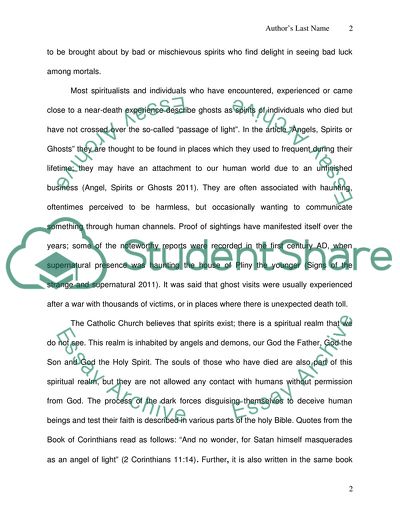Cite this document
(Belief in Ghosts, Spirits, and Afterlife Article - 1, n.d.)
Belief in Ghosts, Spirits, and Afterlife Article - 1. Retrieved from https://studentshare.org/religion-and-theology/1761079-ghosts
Belief in Ghosts, Spirits, and Afterlife Article - 1. Retrieved from https://studentshare.org/religion-and-theology/1761079-ghosts
(Belief in Ghosts, Spirits, and Afterlife Article - 1)
Belief in Ghosts, Spirits, and Afterlife Article - 1. https://studentshare.org/religion-and-theology/1761079-ghosts.
Belief in Ghosts, Spirits, and Afterlife Article - 1. https://studentshare.org/religion-and-theology/1761079-ghosts.
“Belief in Ghosts, Spirits, and Afterlife Article - 1”, n.d. https://studentshare.org/religion-and-theology/1761079-ghosts.


